Fate/Stay Night: Unlimited Blade Works – 24/25 Review
 A whole series about a guy’s journey to realizing that the inability to change is a little bit problematic…
A whole series about a guy’s journey to realizing that the inability to change is a little bit problematic…
This time I review:
Fate/Stay Night: UBW 24/25: Gilgamesh wants to destroy the world. Shirou wants to be a hero. Rin just wants to save the world and that asshole Shinji. Lucky for them… well, except for Gilgamesh… it doesn’t actually matter what they do. In the end it’s someone else who can take credit for saving the world. Then again, he really just did his job, didn’t he?
Review:
 It’s almost as if Saber isn’t her actual name…
It’s almost as if Saber isn’t her actual name…
After the first Fate/Stay-Night-anime-adaptation and the movie about the UBW-storyline, there would’ve been no pressing reason to revisit this story. But the adaptation of the Fate/Zero-LNs changed all that as it not only boasted stunning animation but also offered a darker tone than what you’ve gotten in the first Fate/Stay-Night-adaptation. With the prequel as a new barometer for what Fate/Stay-Night could be like, this adaptation wasn’t just revisiting the already known VN-story but also tried to connect itself more strongly to the Fate/Zero-prequel. This adaptation wants to be taken serious and saw the method to do so was to cut out most of the attempts at lightheartedness.
Despite the zero-episode focusing on Rin for a change, the series remained true to the original by mostly focusing on Shirou’s struggle with his need to become a hero. What’s immediately striking about this belief is just how absolute it is. You’re either a hero or you’re not. You either commit completely to it or you might as well abandon it completely. No shades of grey, no “but…”s, no “what if”s: Nothing seems to be an excuse for Shirou to abandon his insane idea of what being a hero means. And in a way the other characters and the story know that as Shirou gets confronted nearly every episode with disbelief, exasperation and/or mockery. But especially in the Archer-fight when you hear Shirou talk about his beliefs, he doesn’t even treat it like it’s a choice he’s allowed to make. It’s like the ideals that compel him to commit to these obviously unrealistic goals are beyond his control. Just as he only has this one type of magic that he can do, Shirou acts like following those ridiculous ideals is the only thing he can do. He HAS to be hero.
Nobody on this show actually wants Shirou to follow these unrealistic ideas – either because they mock him for having them or because they’re concerned for his well-being. But Shirou remains stubborn to the point of making it seem like fate. So when the Archer-fight ends with Archer simply giving up despite knowing that he/Shirou shouldn’t follow those ideals then you get to this point where Shirou almost stops seeming like a person. He’s just a living embodiment for his ideals. And since said ideals are unrealistic they are doomed to never reach their goal.
But the fight with Archer hadn’t been the actual finale. When the 24th episode starts it continues after a little bit of a cliffhanger as Shirou lies on the ground. Naturally the first thing that happens in the 24th episode is him standing up and continuing to fight. The series always presents the battle on a level of morality and on a level of magic-mechanics.
Things get strange, though, when this series gives Gilgamesh (or Archer previously) these lengthy speeches detailing his exact kind of nihilism but the one who reacts to it is a character whose primary qualities are narrow-mindedness and heroism. Without someone being there to create a real dialogue, most of Gilgamesh’s talking ends up becoming an unwelcome interruption of the fighting therefore.
But an even more important element that dominates the fight between Gilgamesh and Shirou is them taking apart the reasoning behind why who can do what. Fate/Stay Night exists in this strange twilight-realm where sometimes magic is just a mysterious force (someone does something supernatural because well… he can do magic stuff) but at other times the series will really try to explain the nuts and bolts of the magic. A big part of the fight is talking about whether Shirou’s projections are stronger than Gilgamesh’s summoned original Noble Phantasms. As in many shounen-shows, though, what it really comes down to is raw power. All the magic just ends up cancelling itself out and what decides the fight is the simple fact that Shirou is the better fighter.
To get to that point, though, you have to listen to a ton of dialogue and a villain-character who ultimately loses as much because of Shirou’s inherent strength as he loses because of his own arrogance. It’s another villain who doesn’t take the hero serious and then the hero capitalizes on that to win the battle. And what’s worse is that at no point during the battle you feel like it’s personal for either of them. Shirou just fights because he HAS to be the hero and Gilgamesh just dreams of a “better world” and their actual dialogue almost sounds like they’re merely commenting/explaining the battle as it is happening interrupted by Gilgamesh’s occasional nihilistic ramblings. Coming from the Archer-fight where the stakes were very personal, you get to this battle which pretty much is just par for the course. “Of course”, you think, “there’s some villain at the end who wants to destroy the world!”. Gilgamesh is even more one-note than Shirou in that regard because the series at least commented on Shirou’s ideals. In many ways a lot of the details get lost in a general sense of triteness here and the only relevant facts seem to be that one is good, one is evil and they’re fighting over the fate of the world.
If anything, though, Rin’s part in the finale proves that she’s the true hero of this series. Rin’s role throughout the series has always been to support Shirou’s driving need to be a hero while also showing concern for him and softening her own pragmatism to become more compassionate. Where with Shirou you just got a fanatic blockhead, Rin ultimately ends up being the more realistic version of heroism. She tries to do good, even at the cost of her own life but she doesn’t force herself to do it when it doesn’t make sense.
When she tries to save Shinji but fails, she commands Saber to destroy the Grail with her and Shinji. Compared to what Shirou does in his fight with Gilgamesh, Rin comes off as the true hero of the finale here. Her readiness to accept her fate but also accept that she won’t be able to save Shinji is the sort of balancing-act that characterizes virtuosity and heroism. Where Shirou’s heroism seems fanatic and unrealistic with his vow to save “everybody”, with Rin you get here something like the classic “The needs of the many outweigh the needs of the few.”-Spock-Scene.
And then Archer returns.
The finale already struggles to keep things exciting and the promise of Rin’s self-sacrifice makes you wonder what will happen next. But what happens next is a deus ex machina. Archer appears and wins the battle single-handedly. Just in that moment as things start to look dire for both Rin and Shirou, Archer returns from the dead and has coincidentally just enough mana left to both help Rin escape the clutches of the Grail-meat-sack and he helps Shirou kick Gilgamesh’s ass once and for all. With the battle between Gilgamesh and Shirou seeming very impersonal and Rin actually about to have a genuine moment of heroism, it is disappointing that the resolution is a plottwist that basically makes all problems go away. Just like that.
 You can already see here who the dominant one is in the Shirou-Rin-romance.
You can already see here who the dominant one is in the Shirou-Rin-romance.
It’s a happy end for everyone! Except the series offers an epilogue and it devotes an entire episode to that. It details how Shirou and Rin have moved to London to visit this Mage-college called Clocktown and there’s a short flashback in the middle of the episode how Shirou kinda said goodbye to his old life. What’s striking about this epilogue isn’t just that it goes into more detail than you’d expect for an epilogue but it actually revisits the themes of the series with a general sense of somberness the series has never expressed before.
A lot of the episode comments on Shirou’s fate and the big plot-point of the episode is whether Shirou will become a mage officially or whether he will wander the world trying to find a better way to realize his ideals. And it would’ve been easy to just continue to insist that Shirou is fated to become Archer since he’s unable to leave his ridiculous ideals behind. But the epilogue strikes a nice chord between fatalism and hopefulness here. Rin explains to Shirou how he has chosen a path that will inevitably confront him with Archer but maybe this time around he will manage to go further along this path instead of becoming Archer. That’s a far more interesting take on what Shirou has been trying to do than to watch Shirou just stubbornly refuse to listen to everyone else around him.
At other times the episode almost feels like the promise for a second season. Characters pop up who we’ve never seen before and perform certain roles. A new setting gets introduced. And already established characters have acquired new perspectives. It seems less like you’re watching the last episode of a show but instead the first episode of a second season. But this is exactly why the series can have this distance and use it to add finer points to what the series was trying to talk about. Seeing these ponderous, somber moments makes you wish that the show could’ve had more of those.
The series also doesn’t hide the fact that it sees itself more as a sequel to Fate/Zero. Rin has a large speech about how she has realized that nothing they’ve experienced and have done could’ve happened without the past. The focus may be on Shirou and Rin visiting the grave of Saber at Glastonbury but it’s easy to interpret Rin’s speech as a way to establish Fate/Zero as the groundwork for what’s happening in Fate/Stay Night.
Fate/Stay Night wasn’t quite the series it wanted to be. Mostly because the Fate/Stay-Night-VN wasn’t the kind of story the creators of this adaptation wanted it to be. Fate/Stay Night isn’t really the sequel this adaptation wants it to be (even if tertiary characters responsible for comedy quickly leave the stage to only leave room for serious stuff). Especially in the second half the series has struggled to get into a nice rhythm of pathos and drama. Instead, a lot of dialogues made you wish that the series would devote more time to beautifully animating kinetic battle-scenes. This series doesn’t exactly manage to improve on the original VN but with the first adaptation seeming kinda generic compared to this and the movie feeling VERY rushed, this is certainly the best adaptation of the VN right now.
Episodes-Rating: 24th Episode: 6.0/10 25th Episode: 7.5/10
Series-Rating: 6.5/10
Random Thoughts:
- I really like the relationship-dynamic between Rin and Shirou in the 25th episode. Rin manipulating Shirou to follow her to London as much as she’s expressing her love to him while Shirou is just blushing and helpless is a more interesting dynamic than what this series usually offered in their romantic scenes.
- What was weird was when Rin asked Shirou about whether he ever had been in the track-and-field-club. A few episodes ago there was a flashback of Rin watching Shirou practising like crazy alone, Back then I assumed this was the moment when Rin fell in love with Shirou. But it seems this was actually another memory from Archer’s past since the Shirou of this series has always been in the archery-club. I guess this is a hint that Archer and Shirou aren’t exactly the same, so there’s at least the potential there for Shirou to not end up like Archer, I assume.
- Then again, Shirou’s idealistic oath had been to save everybody but when Gilgamesh is about to get sucked in by the Grail and Shirou’s the only one keeping him away from this fate, Shirou’s more than ready to chop off his arm, thereby killing Gilgamesh. I guess, the Shirou after the Archer-fight has already gotten closer to becoming Archer, the “heroic” assassin.
- But even in a rather good episode like the 25th episode you get reminded that the script-writing in this series isn’t great: Why exactly does Rin need to explain to Shirou why he’s studying at this mage-college together with Rin? Shouldn’t he already know that?
- In contrast to that, there’s a nice moment where Rin wakes Shirou who had fallen asleep while practising his projection-magic. And she sees that he had created one of Archer’s swords and you really can see her realizing what is going on in Shirou’s head to have felt the need to create this blade. Just in general it’s nice to see a Rin that kinda is always a step ahead of Shirou.
- The new characters in the 25th episode are references to some other Type-Moon-stuff, I assume…?
Posted on June 28, 2015, in Anime, Fate/stay night: Unlimited Blade Works, Reviews and tagged Anime, Fate/Stay Night, Fate/stay night: Unlimited Blade Works, review. Bookmark the permalink. 6 Comments.





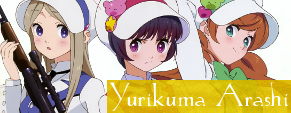



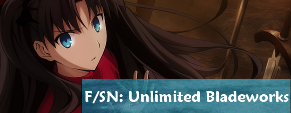


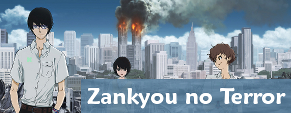
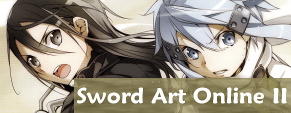



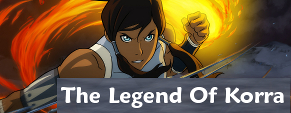
“But especially in the Archer-fight when you hear Shirou talk about his beliefs, he doesn’t even treat it like it’s a choice he’s allowed to make. It’s like the ideals that compel him to commit to these obviously unrealistic goals are beyond his control. Just as he only has this one type of magic that he can do, Shirou acts like following those ridiculous ideals is the only thing he can do. He HAS to be hero.”
What gets me more is that Shirou himself admits Archer is right and then says to be unable to change. And also saying to Waver that he wants to be a Hero of Justice for the millionth time. Having to go through the entire series and watch the conflict regarding Archer to see Shirou speak those things is… Disappointing, at least.
Oh, there’s one thing this series never mentioned: Archer won’t remember anything during the times he is summoned to those Grail Wars. Because the vessels created to house the spirits of the Heroic Spirits are man made, and the entire Grail thing is like a hacking to the system the world of Fate functions. So, when the vessel, Servant, is destroyed, the memory is not retrieved, unlike when the entity (Alaya) summons him as a Counter Guardian. Otherwise, Archer would remember about this timeline and wouldn’t come back as the bitter Servant that is hellbent on killing his past-self. Does this series address this topic? Of course not. Presumably to give the audience the illusion of closure. *sigh*
“When the 24th episode starts it continues after a little bit of a cliffhanger as Shirou lies on the ground. Naturally the first thing that happens in the 24th episode is him standing up and continuing to fight.”
Typical cliche commonly found on Shonens. The hero gets beaten up badly, then he either has a revelation or finds out an impressive move he didn’t know he possessed after that proceeds to overwhelm the villain. Boring.
“Things get strange, though, when this series gives Gilgamesh (or Archer previously) these lengthy speeches detailing his exact kind of nihilism but the one who reacts to it is a character whose primary qualities are narrow-mindedness and heroism.”
In my opinion, this is nothing but a poor attempt at trying to make Gilgamesh’s character look less like a bread and butter villain. However, in the end, both him and his motivations fall really flat when compared to Archer’s motives. He’s there for the sole sake of being beaten by Shirou so he will save the day/save everyone/show he can do stuff.
“A big part of the fight is talking about whether Shirou’s projections are stronger than Gilgamesh’s summoned original Noble Phantasms. ”
That’s what you get when the story presents Gilgamesh as having such an amount of unfair power: It becomes really hard to believe Shirou is able to take him down, and so this show resorts to verbal diarrhea to convey why this and why that, something that clearly breaks the mood during a fight.
“Where with Shirou you just got a fanatic blockhead, Rin ultimately ends up being the more realistic version of heroism. She tries to do good, even at the cost of her own life but she doesn’t force herself to do it when it doesn’t make sense.”
If only Shirou was at least a bit like this… if only…
“Archer appears and wins the battle single-handedly. Just in that moment as things start to look dire for both Rin and Shirou, Archer returns from the dead and has coincidentally just enough mana left to both help Rin escape the clutches of the Grail-meat-sack and he helps Shirou kick Gilgamesh’s ass once and for all.”
Him appearing at a time like this always seemed out of note to me. I found it horrible that Archer and Rin hadn’t had the chance to say anything to each other after all those things happened, but the author could have made Archer deliver his last lines right after the fight with Shirou, and then Gilgamesh would appear and the plot would move on. Instead, he opted for Deus Ex Machina. It’s very hard to swallow this.
“But the epilogue strikes a nice chord between fatalism and hopefulness here. Rin explains to Shirou how he has chosen a path that will inevitably confront him with Archer but maybe this time around he will manage to go further along this path instead of becoming Archer. That’s a far more interesting take on what Shirou has been trying to do than to watch Shirou just stubbornly refuse to listen to everyone else around him.”
I agree this was a good thing to do. But then when one takes into account the way Shirou has been behaving since the beginning of the series and the things he does during this episode (making Archer’s sword, refusing to be an official, saying he wants to be a Hero of Justice again, saying he is unable to follow another path despite admitting Archer is right, etc…), I haven’t got a nice vibe towards his future. At least, the series didn’t implied things are set in stone. It was a long ride, but it is finally over. ☺
LikeLike
“What gets me more is that Shirou himself admits Archer is right and then says to be unable to change. And also saying to Waver that he wants to be a Hero of Justice for the millionth time. Having to go through the entire series and watch the conflict regarding Archer to see Shirou speak those things is… Disappointing, at least.“
Well, the internal logic of the series kinda makes sense. Shirou’s literally unable to not be a hero. But of course the audience’s reaction to that is “Wait, what happened to freedom of will?”. And it is a neat idea as well. I mean, most shounen-series when questioned about fate are all about “Fuck fate!”. But here you get a story of a dude who can’t change his fate – even after learning that it’s a really shitty fate. That somberness in the epilogue should’ve been there the whole time! With the way this series portrays there’s nothing happy about Shirou keep trying to become a hero of justice. The two things that strike me as the most disappointing here are: 1. Shirou never really has an inner conflict in this series. All the conflicts are external or when they should be inner conflicts they get externalized because it isn’t Shirou asking the hard questions in a moment of doubt but Rin or some other character asking those questions. 2. The series never establishes an alternative which is why Shirou can’t say no to his doom. Sure, let’s imagine him saying “Okay, I get it, I don’t want to be a hero anymore.” and then… what’s he gonna be instead…?
Shirou does NOT have a choice in this matter. Of course, it’s strange then that the series tries to make us cheer for Shirou clinging to his ideals. And all the fineprint for this contract with fate get treated with this casual shrug as if to say “Yeah, it’s shitty… but that makes him an even cooler hero, doesn’t it?”.
“So, when the vessel, Servant, is destroyed, the memory is not retrieved, unlike when the entity (Alaya) summons him as a Counter Guardian. Otherwise, Archer would remember about this timeline and wouldn’t come back as the bitter Servant that is hellbent on killing his past-self. Does this series address this topic? Of course not. Presumably to give the audience the illusion of closure. *sigh*“
That’s the sort of nitty-gritty argument you invite by giving your supernatural elements this nuts-and-bolts-treatment. On one side you got stuff like this fight between Harry Potter and Voldemort in the movies where they’re having this battle with their wands and it’s just two energy-beams competing with each other. There the supernatural stuff is just there to dress up more simpler notions of strength and whatnot. Then you got the Lord of the Rings-kinda-stuff where magic is just a mystical force. You don’t need to go into detail about why Gandalf can come back from the dead. It’s just sort-of how that world works in its mystical ways. And then you get this stuff where explaining the supernatural comes close to explaining why someone won a particular game of Magic: The Gathering. There are rules which create an internal logic and the story has to adhere to those rules and logic. But Fate/Stay Night is inconsistent with that.
Oh, and one funny thing about the epilogue is the episode describing the attitude of the other mages in London. First of all, apparently they all treat the Grail-War as business-as-usual. “Yeah, sure, that was a big event for you guys… but on a global scale on the other hand…”. This Grail-War could’ve ended with the apocalypse! And then there was this line about how some mages didn’t like Rin, Shirou and Saber destroying the Grail. Man, that has got to have led to some pretty awkward conversations. Like, Rin and Shirou try to be diplomatic about it “Oh, sure, if I could own a supernatural nuke, I’d love to own a supernatural nuke.” They have to act like they can relate to those mages who are in favor of the grail. “I just KINDA think that having a weapon that could destroy the world is a bad idea…”.
“That’s what you get when the story presents Gilgamesh as having such an amount of unfair power: It becomes really hard to believe Shirou is able to take him down, and so this show resorts to verbal diarrhea to convey why this and why that, something that clearly breaks the mood during a fight.”
The funny thing is that what really leads to Gilgamesh’s downfall isn’t Shirou’s strength but his arrogance. He waits for SO long to summon his super-sword Ea! Gilgamesh, after having lost his arm which had held Ea, has this line about how he concedes that Shirou is indeed powerful in that moment but a more accurate description is that Gilgamesh is weak in that moment. He’s a typical villain who falls due to his own arrogance. Just the logic of that trope! “Okay, I can’t kill you with 30% of my power… how about we try 35%? No…? Well, how about…. 36%? … Oh shit, you’ve overpowered me! I never saw this coming!”.
“I found it horrible that Archer and Rin hadn’t had the chance to say anything to each other after all those things happened, but the author could have made Archer deliver his last lines right after the fight with Shirou, and then Gilgamesh would appear and the plot would move on. Instead, he opted for Deus Ex Machina. It’s very hard to swallow this.”
The best thing was, of course, that when Rin talked with Archer again after the “Archer ex machina”, Archer has Shirou’s hairstyle suddenly! I guess, the writers never had heard of the words “on-the-nose” before. Archer already had had a speech about how he has rediscovered his passion for being a hero of justice. And then you get that stuff.
LikeLike
Indeed a wonderful series, my first fate stay night but not last series.
LikeLike
“The best thing was, of course, that when Rin talked with Archer again after the “Archer ex machina”, Archer has Shirou’s hairstyle suddenly! I guess, the writers never had heard of the words “on-the-nose” before. Archer already had had a speech about how he has rediscovered his passion for being a hero of justice. And then you get that stuff.”
This is just nitpicking on my part as well, but I’ve never enjoyed the hairstyle they gave Archer during this particular scene. If anything, such decision has kind of messed up his character. No need for that really. The VN version, though, isn’ very compelling either:
https://lh6.googleusercontent.com/proxy/8yZazTiff5gIrxyMAdLLOd87-pfyVJr3i9-AoRHlvID7_aB_WcU9ouhTAkyWFvr3tyk9whL6C2Mfs1bUMASA7pfubmJ_YXlwaIEmZPMo14lRf57sUn5rFfQyZWFlwTgkG4jHzg0OUDBs_oIChSr6Zw=w443-h332-nc
If they had him deliver his last speech during the time I mentioned, Shirou hairstyle would’ve also been avoided.
LikeLike
What’s the point of a ‘2 years after’ epilogue if the protagonist isn’t shown to have grown up one bit?
Laughed out loud when the Fate/Zero character said Shirou’s ideal was idiotic.
Doesn’t exactly help that what the series views as the best way to be a hero is to ‘wander in the desert alone’ is fucking idiotic in a modern context
LikeLike
I know right? I always like to compare this series message as a traveler who finds a split path on his way. One of them looks normal and the traveller can see far in the distance, whereas the other is much more aesthetically pleasant, with a rich nature along the sides of the road, but there’s this uneasy feeling to it because ominous signs can be seen in the distance. Shirou would go down the second path, disregarding the signs, instead of choosing path #1 which looks safer. Some lines he’s delivered throughout this last episode are seriously worrying, such as: “Even though I know I’m not right, I can’ change paths.” *sighs*
And this series says basically: It is alright to follow whichever path you like as long as you find it beautiful (even if said path could lead to eternal demise), Something I particularly don’t agree with.
LikeLike